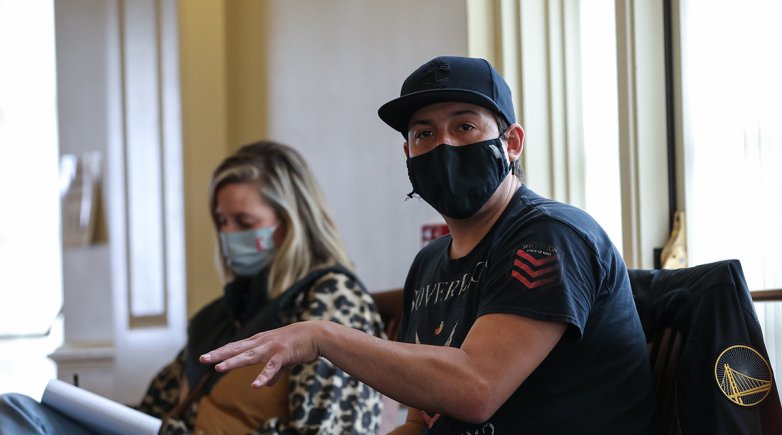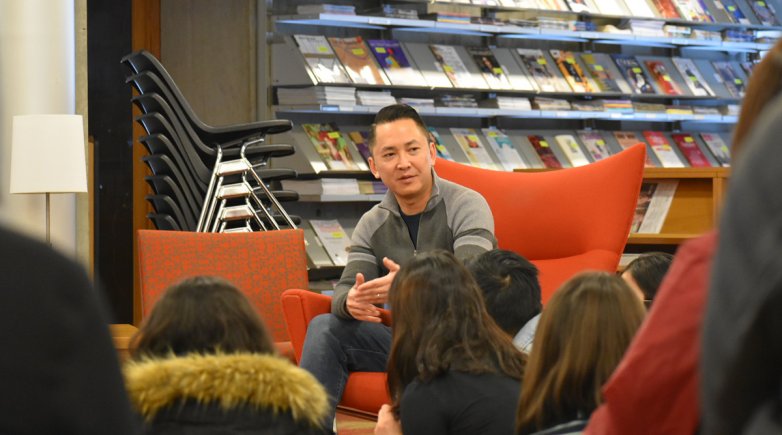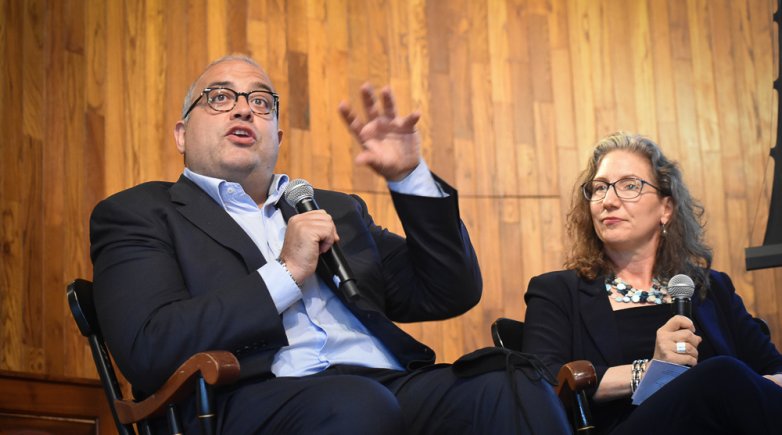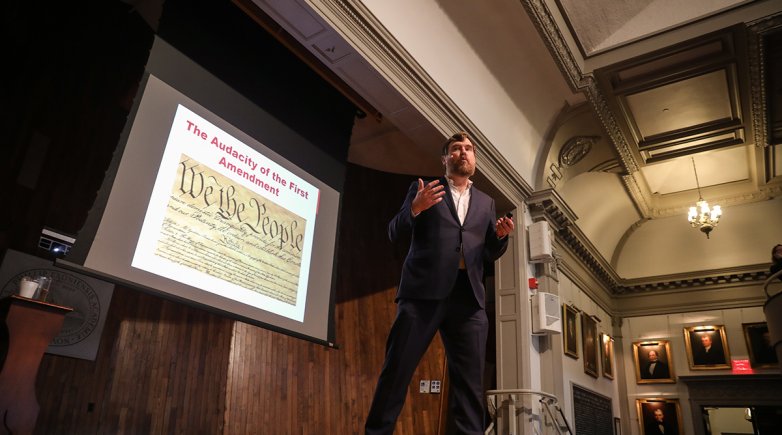Best-selling author talks inspiration, discipline and doubt
Pulitzer Prize finalist Tommy Orange chats with students about his journey to and through the release of his debut novel.
Looking out from under a flat-brimmed black baseball cap, author Tommy Orange watches as students file into the Elting Room, filling the seats lining the perimeter of the space. A day ahead of his assembly address, Orange sits with two sections of lower English students who are in the process of reading his critically acclaimed work, “There, There.”
Orange’s relatable nature quickly wins over the room, and the conversation is off and running. Dog-eared books in hand, the students pepper Orange with questions about the inspiration behind the characters in the book. Orange explains the community in the book is a “composite influence” from his own upbringing as an enrolled member of the Cheyenne and Arapaho Tribes of Oklahoma in Oakland, California.
“It’s not near a work of nonfiction in any way because I made up everyone in the book,” he says. “I’ve worked in a lot of marginalized communities that don't often get their stories told, I really came to value people's personal details in their own stories in a way that I never would have felt comfortable taking somebody's story and using it for a novel.”
Orange shares with the group that his path to becoming an author was an unlikely one, considering he had little interest in literature as a teenager.
“I was not a writer or a reader in high school, and I didn't actually become a writer or a reader until after graduating from college,” he says. “I ended up working at a used bookstore and finished [reading] my first novel when I was like 22 or 23 and completely fell in love with reading and writing at that point.”
Caroline Shu ’24 inquires about the structure of the novel, which follows a cast of characters told in varying perspectives and tenses.
“For most of the characters I switched their point of view in the revision process to see what might fit better. I would set myself to the task of switching tenses from first to third, or this he needs to change to I, sort of tricking myself into continuing to read the work to try to make it better. It can bring out things that you wouldn't expect.”
It took Orange six years to complete “There, There,” but as he tells the group at no point did he encounter writer’s block.
“I think writer's block comes from doubt and fear of failure. And I think any creative work that anyone does, you're going to be filled with doubt because you're trying something that's personal and that you're making up on a very basic level. You're making something up and expecting other people to experience it in a way that takes it seriously to whatever extent,” he says. “I have just found ways to work through it because it feels a lot worse to not be writing than it does to be working through any doubt.”



